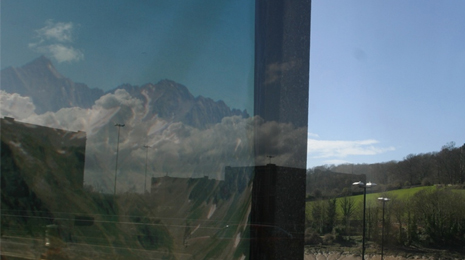Panel 2: Landscape, Enviroment and Movement

The possibilities and limitations, embedded within our landscapes, are central to how we as humans develop and engage with each other. Our mobility is realized through the complex, intertwining of multiple influences, including the socio-economic, emotional, environmental, biological and cognitive.
The combinations and emphasizes through which these influences are expressed and manifested, is culturally bound. This panel, explores these issues from a Portuguese perspective, through the architectural forms and discourses that have emerged within the Portuguese landscape, alongside how such ideas have been extended within virtual space, through computer gaming and other 3D landscape forms.
Speakers:
Pedro Appleton, PT - architect, Promontorio Architecture
Gonçalo Velho, PT - researcher and anthropologist, Instituto Politécnico de Tomar & The Oporto Faculty of Arts
John Klima, US/PT - artist and game designer (tbc)
Chair: Rui Trindade, CADA, PT
Location:
Clube Português de Artes e Ideias
Largo Rafael Bordalo Pinheiro, 29, 2o [ao Chiado]
Bios
Pedro Appleton
Pedro Appleton was born in Lisbon (1970), he received a M.Arch. from the Faculty of Architecture of the Technical University of Lisbon, in 1993, and a M.Sc. in Building Heritage and Conservation by the Portuguese Institute of Technology (IST). He was a collaborator of the Exxon Corporation and various architectural practices before joining PROMONTOÌRIO. He worked in cinema production and amateur theatre and in recent years has been increasingly involved in universal design and disabled accessibility. In this capacity, he has lectured and served on various bodies
and juries as an expert of the Portuguese Association of Brain Palsy.
Gonçalo Leite Velho
Gonçalo Leite Velho is lecturer in the Instituto Politécnico de Tomar and is currently finishing his PhD in Archaeology in Porto University Faculty of Arts. His PhD thesis centers on the problematics of the (re)construction of an monumental hill from the III-II millennium B.C. (Castelo Velho de Freixo de Numão). In his research he has explored the themes of Landscape, Time, Architecture, GIS and 3D.
In the past years he has been part of several European projects. In this moment this involvement includes the projects: Trans-formations (a project involving the areas of Archaeology, Architecture, Landscape Studies and Fine Arts, directed to explore the concepts of techne and Poiesis in Landscape “Hervorbringen”, as a mean for sustain development), Travel in Europe (a MMOG with Heritage as main theme, and concentrated on the integration of new interfaces), Hallerstein (a project involving China, Slovenja and Austria centered on the XVIII century character of Hallerstein).
John Klima
John Klima employs a variety of technologies to produce artwork with hand-built electronics, and computer hardware and software. Consistently connecting the virtual to the real, Klima builds large scale electro-mechanical installations driven by 3D game software he programs from scratch. The virtual computer imagery mirrors and extends the potential and agency of the physical components to produce cohesive worlds that are both humorous and sinister.









 English
English Português
Português